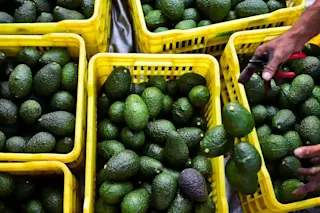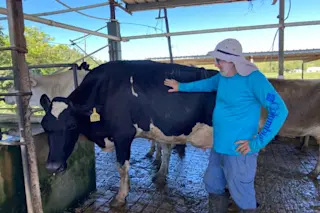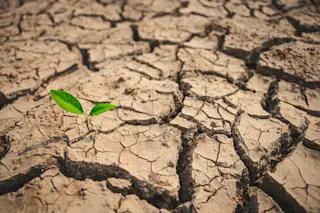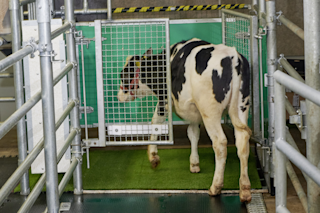It goes like this: 1. You fear something. 2. You find a hypothesis to justify your fear. 3. You block stuff that doesn't support your case.
That's from Tim Minchin, who concisely describes the process that leads anti-GMO opponents and apparently many greens to support destruction of an agricultural experiment, that as John Timmer notes, "is actually designed to test a [wheat] strain that has the potential to reduce pesticide use." Timmer's piece is an excellent description of the research and the precautions that scientists have taken for it. For those of you just tuning it, some truly amazing crop research has been the center of a controversy the past few weeks, which is coming to a head today. In future posts, I'll be returning to a few of the major issues and themes that are now being debated as a result of this particular anti-GMO campaign. (I'm guessing Take the Flour Back didn't figure on the blowback and mobilization of scientists.) Right now, I'm going to briefly return to a question I asked in my recent Discover piece, which someone on twitter put this way:
Why do many environmentalists trust science when it comes to climate change but not when it comes to genetic engineering?
This double standard rankles plant researchers, one who asserts:
And you don't get to say harassment of climate scientists = anti-science and not say the same thing about plant scientists.
One person who has been vocal in his support of climate scientists is Steve Easterbrook, a professor of computer science at the University of Toronto, whose research focuses "on the contributions of computing and software to the challenge of dealing with climate change." For the climate science community, climategate was a galvanizing event, in which many of them, such as Easterbrook, have risen to publicly defend their honor and profession. Thus, you might think that he (and other environmental scientists) would naturally come to the defense of plant scientists whose work and profession has also come under assault--by anti-GMO activists. Not when it comes to genetic engineering. It seems that many in the environmental community have a visceral dislike of biotechnology, especially GMO's (genetically modified organisms.) It's an interesting little quirk, which is worth exploring in more depth. Meanwhile, Easterbrook has just offered up a long treatise that essentially lays out his misgivings about genetically engineered crops. It's a holiday weekend here in the U.S., so I don't have the time right now to go through it in detail. But this section is worth highlighting; it articulates one of the main arguments that enviro-minded folks make against genetic engineering (my emphasis):
Some see GMOs as a health issue. Potential human health effects include allergies, and cross-species genetic transfer, although scientists dismiss both, citing a lack of evidence. While there is some (disputed) evidence of such health risks already occurring, on balance this is more a concern about unpredictable future impacts, rather than what has already happened, which means an insistence on providing evidence is irrelevant: a bad outcome doesn't have to have already occurred for us to take the risk seriously. If we rely on ever more GMOs to drive the global agricultural system, sooner or later we will encounter such health problems, most likely through increased allergic reaction.
So if I read this right, he is, on the one hand, citing disputed evidence of health risks already happening, while simultaneously asserting that evidence is not necessary. Oh, and then there's the assumption (remember, no evidence needed!) that sooner or later, GMO's are going to cause health problems. Does this sound like scientific thinking to you? Easterbrook concludes by saying that the wheat research opposed by anti-GMO protesters "should be halted immediately" by the plant scientists themselves. If I were a biotech plant scientist reading Easterbrook's post, I might remind him of the time he said that, when scientists
form opinions on a field other than their own, they are likely to be based on a very patchy reading of the field, and mixed up with a lot of personal preconceptions. They can cherry pick.
Or the time he wrote this:
But outside of a particular scientific field, lay observers find it hard to tell nonsense from sound science. So the nonsense spreads insidiously, and the public discourse diverges ever further from the scientific one. Luckily, there are a few people who are willing to devote themselves to tackling the nonsense head on. Ben Goldacre is my favourite example "“ he runs a newspaper column, blog and book called Bad Science. It helps that he's a witty writer and an even wittier speaker. (It probably also helps that he's British).
Yes, let's go to Ben Goldacre and see what he has to say about GMOs:
I'm no friend of big biotech. I think GM has created a dangerous power shift in agriculture in favour of multinational corporations. So I'm cautious about GM foods, but they seem safe overall. If there's something new and frightening, then I want to see it published, in full, so we can all sit down and get frightened by it together, on the basis of well-conducted research that we can see and read.
Of course, you can't do that if the people frightened by it want the research destroyed before it can be published.













